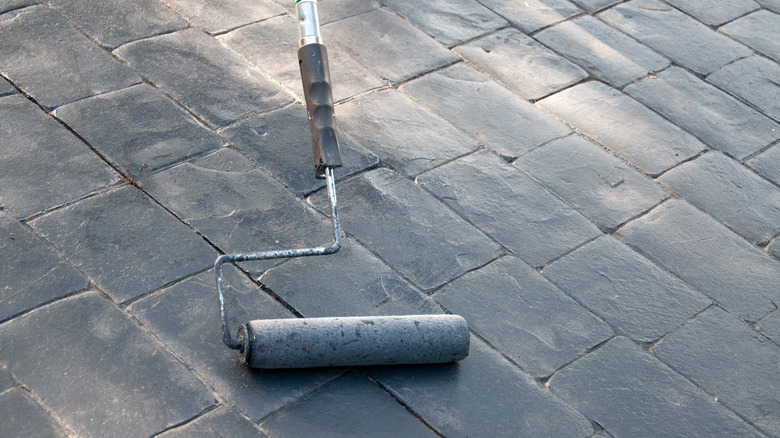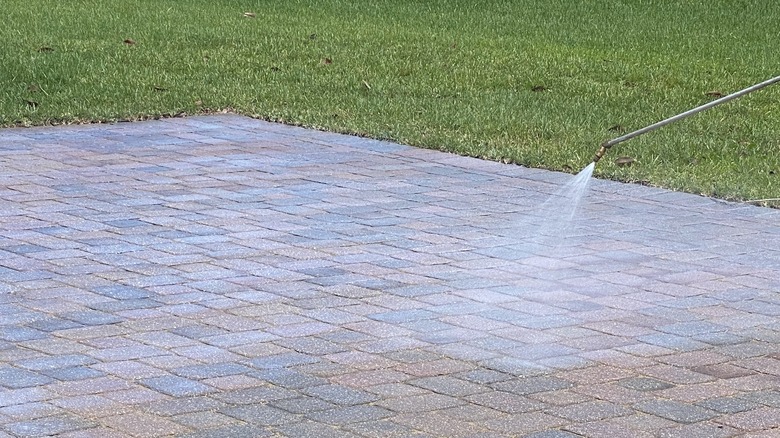There Are Some Cons To Consider Before Sealing Your Pavers
Paver stone driveways and patios have a unique character that their asphalt and concrete counterparts just can't match. The stones' ornate, old-world charm adds a great deal of visual interest to an otherwise boring hardscape, and possibly complements the aesthetic of your house. If you have stone pavers on your property, you may want to elevate their aesthetic further by sealing them. We don't blame you — sealing pavers offers a number of benefits. For one, sealant affords the stones an elegant, glossy look and emphasizes their natural colors. But crucially, sealant also protects the pavers from UV rays, rust, and other contaminants that may degrade them or otherwise alter their appearance. What's more, it stops weeds from growing between the pavers. Sounds like sealing the pavers is a no-brainer, right?
Well, hold your horses. While the sealant has aesthetic and practical uses, it also comes with a number of drawbacks. For one, sealing pavers is not a get-it-and-forget-it kind of deal. Sealed pavers may well need regular resealing, which is a costly and time-consuming task. Secondly, that wet look your pavers get from the sealant creates an unnecessary slip hazard, which is particularly dangerous on the driveway, since it's usually sloped. Thirdly, the sealant may damage plants during application. And finally, sealing your paver stones is not a cheap affair — expect to pay between $1 and $2 per square foot. Keep in mind that you'll pay this much again when you go to reseal the area. Below, we'll look at these drawbacks further and help you decide whether you should apply paver sealer to your patio or driveway.
How to decide whether sealing your pavers is a great idea
Some of the drawbacks we've listed above are easier to mitigate than others. For example, although sealant can be toxic to the plants that grow next to your driveway or patio, you can minimize the amount of liquid getting onto the vegetation. As long as you're willing to wait for a calm, wind-free day, you should be able to direct the sealant spray away from your green friends. Likewise, you can make the paver finish less slippery by choosing a high-quality sealant and wiping off excess liquid during application.
On the other hand, reapplying the sealant is virtually unavoidable. Sealant doesn't last forever, especially if it's exposed to heavy traffic on your driveway. Every five years or less, you'll need to rent the application sprayer, stock up on the sealant, and go to work putting on a new coat of the finish to replace the old one. This procedure involves pressure-washing the entire space, filling in paver joints with sand, then reapplying the sealant and waiting for it to cure.
Finally, there's the cost. Cheaper variants cost as little as $100 and as much as $300 per bucket. Mind you, you want the good (i.e., the pricier) water-based sealants to get a higher quality finish and keep the pavers from becoming too slick in wet weather. To sum up — go ahead and seal your pavers if you don't mind the costs and labor associated with the first and subsequent applications. Also, be sure you have the patience and know-how to properly seal the pavers to keep your plants out of harm's way.

